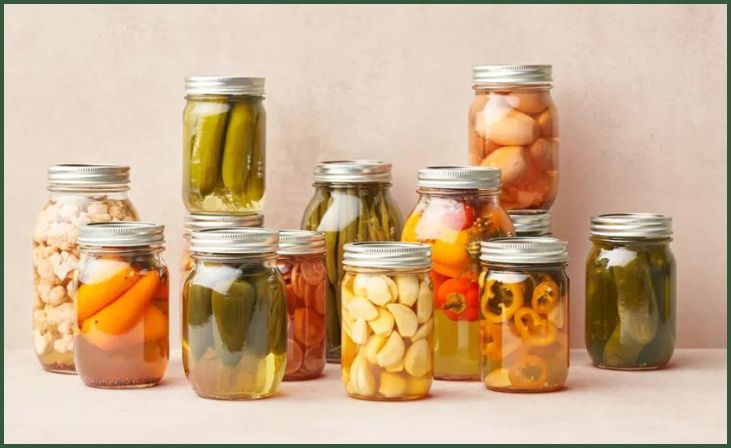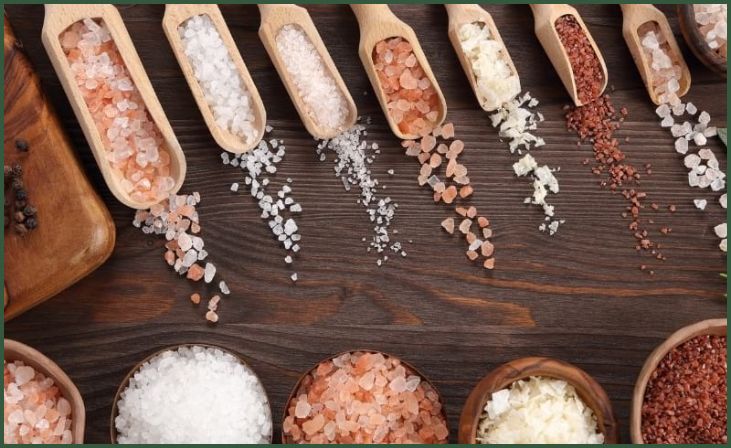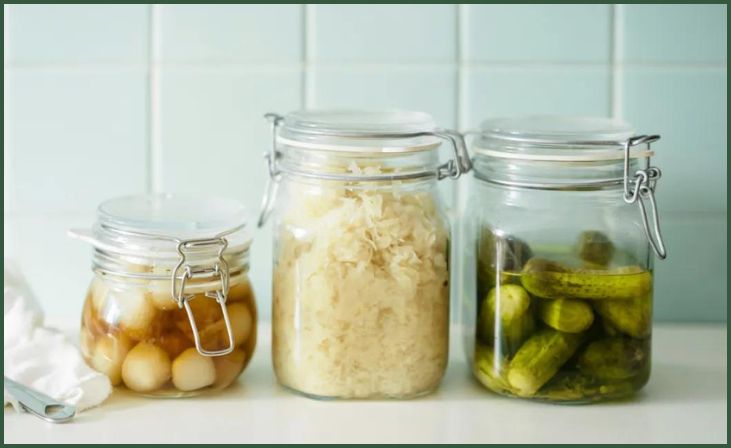Fermentation is an ancient and transformative food preservation technique that has been practiced by cultures around the world for centuries. It’s a remarkable process that takes ordinary ingredients and turns them into extraordinary culinary creations. When it comes to the world of fermenting, using salt is both an art and a science. In “Fermentation 101: The Do’s And Don’ts Of Using Salt,” we will embark on a journey to unravel the secrets of successful fermentation. This comprehensive guide is designed to be your trusted companion, sharing not only expert knowledge but also practical advice to ensure that your fermentation endeavors are nothing short of a resounding success.
Table of Contents
ToggleA Brief Overview of Fermentation

Before delving into the intricacies of salt’s role in fermentation, let’s take a moment to grasp the fundamentals of what fermentation truly entails. Fermentation is a metabolic process, a magical transformation that converts sugars into either alcohol or organic acids. This remarkable process is orchestrated by a cast of microscopic characters, including yeast, bacteria, and molds. But it’s not just a culinary phenomenon; it’s a pivotal method for preserving and elevating the flavors of a wide array of foods and beverages.
Also Read:- Fermentation Gift Basket
Understanding the Role of Salt
Now, let’s shine a spotlight on the role that salt plays in the captivating world of fermentation.
Salt: The Key Player in Fermentation

In the grand symphony of fermentation, salt assumes the role of a key player, directing and harmonizing the complex dance of microorganisms. Its primary functions are as follows:
1. Inhibit Harmful Bacteria: Salt is a natural microbial gatekeeper. It creates an environment that discourages the growth of harmful microorganisms, allowing the beneficial ones to thrive. This selective inhibition is a critical aspect of successful fermentation.
2. Enhance Flavor: Beyond its preservative role, salt is a flavor enhancer extraordinaire. It has the remarkable ability to bring out the hidden nuances in fermented foods, making them more intricate and satisfying to the palate.
The Do’s of Using Salt
Now that we understand the importance of salt, let’s explore the essential do’s that will elevate your fermentation endeavors to a whole new level:
1. Choose the Right Salt: The foundation of successful fermentation starts with the right salt. Not all salts are created equal. It’s crucial to opt for non-iodized, pure sea salt, or kosher salt. These varieties lack the additives that could interfere with the fermentation process, ensuring a smoother journey.
2. Measure Accurately: Precision is paramount in fermentation. To strike the right balance, it’s imperative to measure salt accurately. A kitchen scale or measuring spoons are indispensable tools for this purpose. An incorrect amount of salt can disrupt the delicate microbial equilibrium within your fermentation vessel.
3. Maintain the Right Salt Concentration: Different recipes and ingredients may necessitate varying salt concentrations. Finding the perfect equilibrium for each specific fermentation project is key to success.
Don't just scroll, subscribe!
BuzzTrail's unique web-stories are the cure for boredom you've been waiting for.
4. Create a Brine: One of the most common methods of incorporating salt into your fermentation is by dissolving it in water to create a brine solution. It’s essential that the brine’s concentration is meticulously tailored to support the growth of beneficial microorganisms.
5. Mix Thoroughly: When adding salt to your fermentation vessel, thorough mixing is a must. Even distribution of salt ensures that no pockets exist with too little or too much salt. This uniformity is crucial for a consistent fermentation process.
6. Use Salt to Taste: While it’s valuable to start with a recipe as a guide, remember that your palate is the ultimate authority. Don’t hesitate to adjust the salt level to align with your personal taste. Your sensory perception should be the guiding force.
The Don’ts of Using Salt

To ensure a successful fermentation, it’s equally vital to be aware of what not to do:
1. Don’t Over-Salt: Excessive salt can spell disaster for your fermentation project. It inhibits the growth of beneficial bacteria and can render your fermented foods excessively salty, detracting from the overall taste.
2. Don’t Under-Salt: Conversely, insufficient salt can open the door for harmful bacteria to proliferate, potentially spoiling your batch. Finding the right balance between over-salting and under-salting is the key to a triumphant fermentation experience.
3. Avoid Table Salt: Table salt, often laden with additives like anti-caking agents, is not the ideal choice for fermentation. Stick to pure, unadulterated salts to ensure a smooth and flavorful fermentation process.
Also Read:- Lacto-Fermentation Versus Canning And Pickling
Conclusion
In the realm of fermentation, comprehending the essential do’s and don’ts when it comes to using salt is nothing short of pivotal. It’s the compass that guides you through the intricate journey of transforming raw ingredients into delectable, probiotic-rich treasures. By adhering to the following principles – selecting the right salt, using it in precise quantities, and faithfully following these guidelines – you’ll pave the way for your fermentation endeavors to flourish and deliver a symphony of flavors.
Selecting the Right Salt is akin to choosing the right paint for a masterpiece. Not all salts are equal, and this decision carries immense significance. Opting for non-iodized, pure sea salt, or kosher salt is akin to selecting a fine brush for a masterpiece. These salts stand apart because they lack the additives that might hinder the delicate dance of fermentation. It’s the initial step in your journey towards a successful outcome.
FAQs
Q: How long does it take to ferment with salt?
Q: How long does it take to ferment with salt?
Fermentation times vary depending on the recipe and the ingredients. It can take anywhere from a few days to several weeks.
Q: Can I use any type of salt for fermentation?
Q: Can I use any type of salt for fermentation?
It’s best to use non-iodized, pure sea salt, or kosher salt for optimal results.

